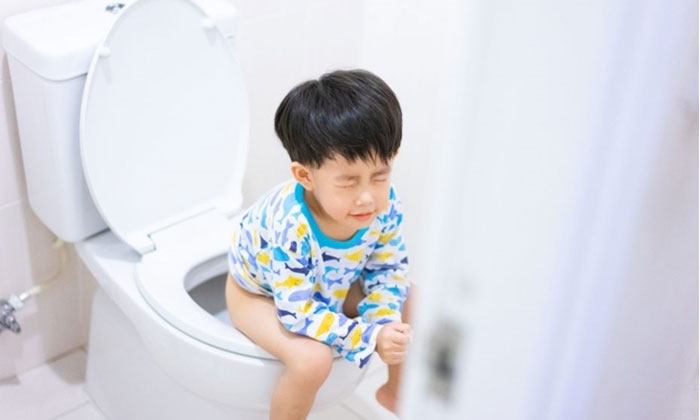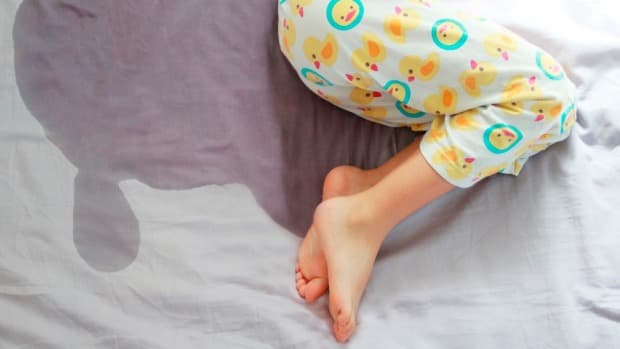Constipation & Bed Wetting
Constipation
Constipation refers to the inability to pass stool or passing of minimal very hard stool accompanied by pain. There are many causes of constipation because it is by far one of the most common childhood conditions. Constipation affects around 30-40% of children each year, and as a parent, you should not be concerned.

Symptoms of constipation:
Two or fewer bowel movements in a week.
Passing of hard stool or sometimes pellet-like.
- Inability to pass stools.
- Pain when passing stool with or without associated fresh bleeding or tear.
- Avoidance of bowel movements.
Constipation causes include:
- Dehydration or not taking enough water.
- Pain when passing stool.
- Forgetting to pass stool.
- Certain medications have been associated with constipation.
- Anal deformities such as the imperforate anus or Hirsprungs disease or spinal pathology.
- Coeliac disease, inflammatory bowel diseases, hypothyroidism, hypercalcemia, etc.
- Taking constipating foods or lack of fiber in the diet.
Bed Wetting
Enuresis, or bedwetting, is a condition in which children wet their beds. It is quite common in children and is only considered abnormal if it occurs on a regular basis beyond the age of five.
Bedwetting causes include:
- Genetics
- Deep sleep is the major cause of bedwetting
- Stress
- Weak bladder due to an under-developed central nervous system
- Hormonal factors
- Infections of the urinary tract
- Spinal cord abnormalities
- A small bladder

The reason why the age of five is the cut-off is because this is believed to be the age when bladder control is achieved.
If your kid is beyond the age of 5 and wets the bed more than twice a week, kindly visit your pediatric doctor.
Your child is above the age of 5 and wets the bed during the day or at night.
A comprehensive history is used to diagnose bed wetting. The doctor will first rule out any underlying conditions that may be causing your child’s bedwetting.
To rule out diabetes, they may do a physical exam followed by a urine test.
A physiological examination will then rule out any emotional stress or other psychiatric issues. However, in the majority of instances, no reason for bedwetting has been identified.
When should you worry about bedwetting?
- If a child who was not previously bedwetting begins to wet the bed again.
- If there is associated pain, blood stains and a burning sensation when passing urine.
- Passing urine is becoming more frequent and urgent.
- The symptoms listed above suggest a urinary tract infection and should be investigated further. It might potentially be diabetes or a urinary tract infection.
Treatment for Bedwetting
Bedwetting Medication
The majority of children who urinate in bed do not need medication. However, following a thorough examination of the child’s unique situation, the doctor may prescribe medicine.
The most often prescribed medication is DDAVP, which works by decreasing the volume of urine at night. It is reserved for children who fail to show improvement even after the use of the alarm system.
DDAVP is safe to use as long as you never exceed the recommended dose.
How to diagnose constipation in children?
Your child may need specific testing to help determine the cause of constipation. These tests may involve the following:
- Abdominal X-ray: A specific X-ray image used to assess the amount of stool in the large intestine.
- Anorectal manometry is a test that assesses the strength of the muscles in the anus, nerve reflexes, the sensation that the rectum is opening, and muscular coordination when pooping.
- Rectal biopsy: A tissue sample is taken from the rectum lining to be examined under a microscope for any issues.
- Blood test: Blood tests, such as a complete blood count, can show signs of certain diseases.
- Contrast enema: This is a test that takes pictures of the colon or large bowel, which is the bottom section of the intestines, using X-rays and a specific kind of enema fluid. The test will show the doctor whether anything is abnormal with the colon and how well it is functioning.
- Stool test: A stool test can show signs of infection or blood in your child’s stool.
- Urine test: A urine test can show signs of bladder inflammation or infection.
Constipation treatment:
- Give your child adequate water.
Include prune juice in their diet. It contains sorbitol which adds bulk to stool. - Vegetables, fruits, and other high-fiber foods
- Encourage toilet time through a reward system with every successful stool passage.
- Make restroom time more enjoyable.
For children who are too busy, make toilet time a part of their schedule. - Encourage them to use the toilet and assist them with stool passage.
- Laxatives as advised by medical practitioners.
- Repair any underlying medical issues, such as anal fissures or hypothyroidism.
Medical treatments:
- To promote bowel movement, an enema may be utilized.
- The child may also be given a laxative, however only for a brief time until constipation subsides.
- Laxative options for children
- Lactulose – The most common laxative. The syrup-like composition has a sweet taste. It may be combined with juice or milk. It tends to work by softening the stool
- Coloxyl drops
- Suppositories and enemas
- These are tablets or liquids that are placed in your child’s bowel that cause the rectum to empty. Never give your child an enema unless instructed by the doctor.
For more information & consultation on Constipation and Bedwetting, Get in touch with Dr. Adwait Prakash a Pediatric Surgeon in Indore. will help you out in understanding your problem and guide you through every stage of your treatment.
To book your appointment Call: 8889588832.
